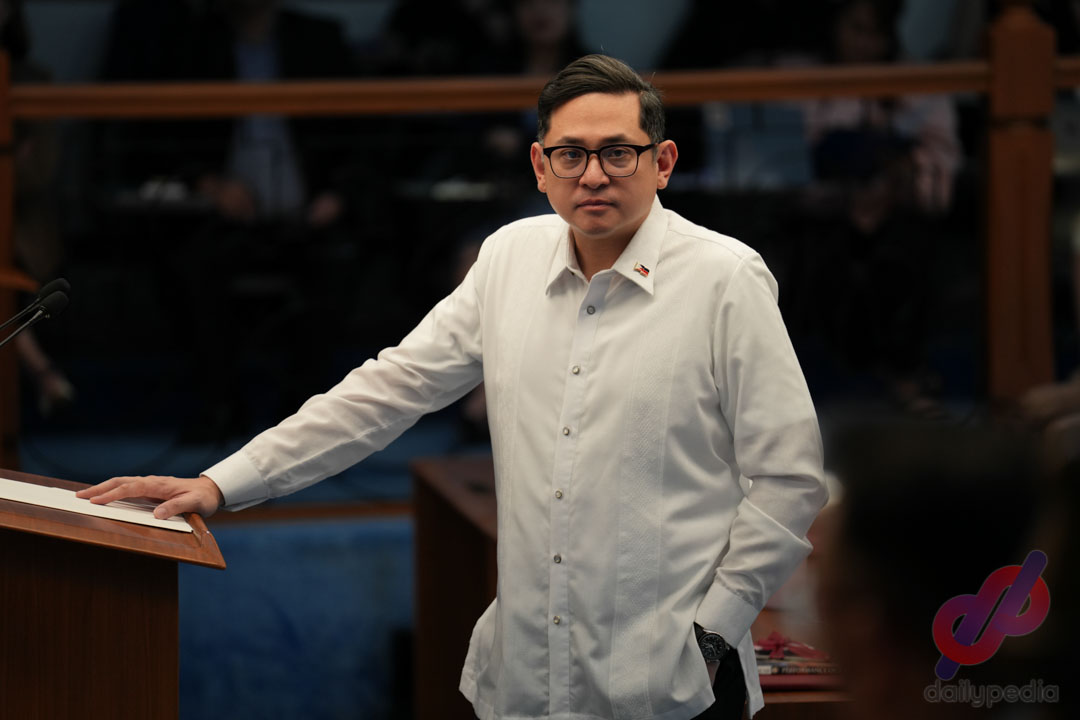More than 300 local officials, lawmakers, and education advocates have rallied behind Sen. Bam Aquino’s Classroom-Building Acceleration Program (CAP) Act, a proposed measure designed to speed up the construction of public school classrooms nationwide.

Filed as Senate Bill No. 121, the bill seeks to decentralize the classroom construction process by authorizing not just the Department of Public Works and Highways (DPWH) but also local government units (LGUs) and qualified non-government organizations (NGOs) to build classrooms that meet Department of Education (DepEd) standards.
According to Sen. Aquino, the CAP Act will complement President Ferdinand Marcos Jr.’s directive to channel funds directly to LGUs, ensuring faster implementation and greater transparency in addressing the country’s classroom shortage.
“We can no longer afford to wait. Every day without enough classrooms is another day a Filipino child is denied quality education,” Aquino said.
Among the key supporters of the measure are Quezon City Mayor Joy Belmonte, Naga City Mayor Leni Robredo, Manila Mayor Isko Moreno, Marikina Mayor Maan Teodoro, Infanta Mayor LA Ruanto, Tampakan Mayor Leonard Escobillo, Iloilo City Mayor Raisa Trenas, Akbayan Partylist Reps. Chel Diokno and Perci Cendana, and members of the Kaya Natin! Movement for Good Governance and Ethical Leadership and the Jesse M. Robredo Foundation.
Belmonte affirmed Quezon City’s full support for the measure, calling it a “timely and practical solution.”
“Kaisa ang Pamahalaang Lungsod ng Quezon sa hangarin ni Senador Bam Aquino na mapabilis ang pagtatayo ng mga silid-aralan. Patuloy nating tinutugunan ang pangangailangan sa mga silid-aralan sa Quezon City, at tiwala akong makatutulong ang programang ito upang matiyak na bawat bata ay may maayos at ligtas na espasyo para sa pagkatuto,” she said.
In Iloilo, Mayor Raisa Trenas noted that while her city has already built classrooms through the Special Education Fund, the backlog remains significant.
“The CAP Act will greatly support and complement local efforts, allowing us to build more classrooms faster and ensure that every Ilonggo learner has access to safe and conducive spaces for learning,” she said.
Marikina Mayor Maan Teodoro echoed this, saying LGUs are “ready to build and complete more classrooms.”
“We join the call of PBBM and Sen. Bam Aquino to devolve classroom construction to LGUs, ensuring faster implementation, better cost efficiency, and stronger accountability,” she added.
Manila Mayor Isko Moreno emphasized that empowering LGUs makes sense because they are directly accountable to their constituents.
“Tama si Sen. Bam Aquino na mas mapapabilis ang konstruksyon ng mga paaralan kung ang mga local government mismo ang katuwang ng national government dito,” Moreno said.
From Quezon Province, Mayor LA Ruanto of Infanta underscored that investing in classrooms is “an investment in the nation’s future.”
“Ang pagbibigay-kapangyarihan sa DepEd, LGUs, at NGOs na umaksyon at itayo ang mahahalagang espasyong ito ay hindi lamang tungkol sa imprastraktura. Ito ay tungkol sa pamumuhunan sa mas magandang kinabukasan para sa bawat batang Pilipino,” Ruanto said.
Tampakan Mayor Leonard Escobillo, vice president of the League of Municipalities of the Philippines (LMP) for Mindanao, likewise pledged full support.
“Local governments are more than willing and ready to take on this role and work with the national government to address the classroom backlog,” Escobillo said.
Meanwhile, Akbayan Reps. Chel Diokno and Perci Cendana both urged Malacañang to certify the bill as urgent.
“The administration should prioritize the welfare of our youth,” Diokno said. “Once enacted, this measure will empower LGUs and NGOs to build classrooms efficiently and transparently.”
“Hindi acceptable ang 145,000 na backlog ng classrooms. Our kids deserve quality and safe classrooms,” Cendana added. “We need the CAP Act to accelerate classroom construction and save our education system from the brink.”
In a joint statement, the Kaya Natin! Movement and the Jesse M. Robredo Foundation called on President Marcos to certify the bill as urgent, citing the “crisis-level shortage of classrooms.”
“This program is more than just construction; it is a critical investment in our youth,” the statement read. “By empowering LGUs and communities, the Act embodies the principles of people-centered governance championed by the late Secretary Jesse Robredo.”
During the Senate hearing on the DPWH budget, Public Works Secretary Vince Dizon also expressed openness to partnerships with LGUs and NGOs to accelerate the construction of much-needed classrooms nationwide.
With support spanning national agencies, local governments, civil society, and Congress, the Classroom-Building Acceleration Program Act is shaping up to be one of the most widely backed education reforms in recent years—one that could finally help end the country’s chronic classroom shortage.
As Sen. Bam Aquino put it, “This is not just about building walls—it’s about building the future of our children.”



